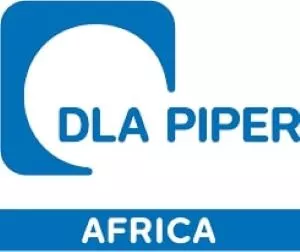- within Law Practice Management topic(s)
1. What legislations apply to merger control in Nigeria?
The principal legislation regulating mergers, acquisitions and takeovers ("mergers") in Nigeria is the Federal Competition and Consumer Protection Act 2018 (including the regulations and guidelines made pursuant to it) ("FCCPA" or "Act"). In addition to this, there is the Companies and Allied Matters Act 2020, the Investment and Securities Act (ISA) 2007 as well as other sectoral legislations such as the Bank and Other Financial Institutions Act 2020, Insurance Act 2003, Nigerian Communication Act 2003, Electric Power Sector Reform Act 2005, among others.
In this piece, we have produced answers to some frequently asked questions in relation to notification and merger approval by the Federal Competition and Consumer Protection Commission (the "FCCPC" or "Commission") and the Securities and Exchange Commission (SEC).
2. The competition authority in Nigeria
The FCCPC is the main regulatory authority for mergers in Nigeria. It is saddled with the ultimate responsibility of reviewing all mergers and other business combinations or arrangements, and indeed, all matters relating to competition in Nigeria, among other functions.
The Securities and Exchange Commission also regulates mergers involving public companies as well as transactions involving a change of shareholding of capital market operators.
It is to be noted that a merger involving a public company and a private company is subject to the review of both the SEC and the FCCPC. Precisely, the purview of the SEC's regulation of mergers involving public companies is to ascertain and ensure that all shareholders of the merging public companies are fairly, equitably and similarly treated and that they are also give sufficient information regarding the transaction1, while the FCCPC will focus on the competition dimensions to ascertain whether the merger could substantially prevent or reduce competition.
Although all companies are required to obtain an approval for mergers and acquisitions from the FCCPC, the SEC Rules mandates public companies to apply to SEC for approval in respect of the following transactions2:
- the conversion of a public company to any other form of company or the reconstruction of the shares of a public company;
- carve-out, spin-off, split-off or other forms of restructuring of operations of a public company;
- the acquisition or disposal of the assets, business, subsidiaries, shares or other significant property of a public company which results in a significant change in the business direction or policy of a public company or any other listed entity whether or not in relation to any proposal, scheme, transaction, arrangement or activity; and
- Any amalgamation or merger or business combination involving a public company.
The following however are exempted from SEC notification/approval:
- Any acquisition by a public company of a business or asset which does not involve the issuance of shares of the public company as consideration for the acquisition. The company will, however, be required to provide pre and post-acquisition financial statements to its shareholder; and disclose any conflicting interest with respect to the transaction.
- Any divestment of the asset of a public company that is less than 15% of the total asset of the company or any divestment of assets that do not form a core part of the business. The company may, however, voluntarily notify SEC of any such divestment3.
There are also some sector-specific authorities that regulate merger transaction; these include: the National Broadcasting Commission (NBC), the Nigerian Communications Commission (NCC), the Central Bank of Nigeria (CBN).
3. What constitutes a "merger"?
By virtue of the FCCPA, a merger occurs when "one or more undertakings directly or indirectly acquire or establish direct or indirect control over the whole or part of the business of another undertaking". This may occur through the purchase or lease of shares; an interest in assets of an undertaking; the amalgamation or other combination with the undertaking; or a joint venture4.
An undertaking has control over the business of another undertaking if it: (a) beneficially owns more than one half of the issued share capital; or (b) is entitled to cast a majority of the votes; and (c) is able to appoint or veto the appointment of a majority of the directors of the undertaking5.
A merger is defined under the SEC Rules to mean any amalgamation of the undertakings or any part of the undertakings or interest of two or more companies or the undertakings or part of the undertakings of one or more companies and one or more bodies corporate6.
4. What are the relevant jurisdictional thresholds?
Large mergers occur where the parties to the merger in Nigeria have a combined annual turnover equal or is above NGN1,000,000,000 (one billion naira) in the year preceding the merger; or where the annual turnover of the Nigerian target firm equals or exceeds NGN500,000,000 (five hundred million naira) in the year preceding the merger. Parties to such mergers must notify the FCCPC before implementing the merger and approval of the FCCPC must be given.
While mergers that do not meet the above threshold are classified as small mergers and parties need not notify the FCCPC. The Act provides that within six months of the implementation of such small merger, the FCCPC may require notification if it is of the opinion that the merger may substantially prevent or lessen competition in the Nigerian market7.
T he SEC Rules provides that the threshold for each category of merger shall be determined by reference to a combination of assets or turnover or a combination of both turnover and assets in Nigeria of the merging entities. The lower threshold for "small mergers" is below NGN1,000,000,000 (One Billion Naira), the threshold for "intermediate mergers" is between NGN1,000,000,000 (One Billion Naira), and NGN5,000,000,000 while the upper threshold for "large mergers" is above NGN5,000,000,0008 (Five Billion Naira).
Parties to a small merger are not required to notify the SEC of the merger but shall be required to inform SEC at the conclusion of the merger. The parties may, however, voluntarily notify the SEC of the merger. Parties to an intermediate or a large merger is mandated to notify SEC of the merger.
5. Does the jurisdiction of the FCCPC merger control extend to foreign-to-foreign mergers?
Yes, the FCCPC has jurisdiction to review a foreign-to-foreign merger.
The Act applies to any person or entity in relation to the acquisition of shares or other assets outside Nigeria resulting in the change of control of a business, any part of a business or any asset of a business existing in Nigeria9.
Hence, where a merger occurs purely as a result of a transaction involving undertakings wholly domiciled outside Nigeria (i.e., foreign to foreign mergers with Nigerian component), the Commission will assess the merger if it has a local nexus. For instance, if it has subsidiaries in Nigeria and attains the jurisdictional threshold for merger control filing/notification. Likewise, the Commission will examine if the transaction has an impact on the Nigerian economy or affect the Nigerian market structure by substantially preventing or lessening competition.
6. What is the procedure and prescribed format for notification?
The notification process is carried out online via the FCCPC online Merger Notification Portal10 ("Portal"). This eliminates the need for physical submission of documents relating to merger transactions at FCCPC's offices in Abuja, Nigeria. Hence, this Portal also enables merging parties to consult with and obtain clarifications from the FCCPC online before filing a formal merger notification.
A representative duly authorised by the parties must create an account on the Portal and obtain log in details after creation of the account. The Log in details obtained will grant the personnel access to the site to commence the notification process and upload the requisite documents on the Portal for merger review11.
The FCCPC provides for Form 1(notice of merger) and Form 2 (notice of merger -simplified procedure), as applicable, for parties to notify the Commission. The form allows parties to provide all required information to notify the Commission of the merger. This includes the name of parties, the nature of the business, a non-confidential executive summary of the merger, ownership and control and supporting documentation, among others.
The procedure for notifying a merger to the FCCPC is as follows:
- The pre-notification consultation phase where the merging parties contact the FCCPC at least two weeks before formal notification. The purpose of this consultation is to determine the scope of the merger notification process; and
- The formal merger notification comes after (a) above and may be done by way of the standard or simplified procedure, using the relevant Forms 1 or 2 and attaching the requisite supporting documents.
The simplified procedure may be adopted where upon a self-assessment, the merging parties are of the view that the proposed merger is less than likely to prevent or lessen competition and that no further evidence will likely be uncovered to revise this finding.
A public company is also required to make an application to SEC by:
- file a preliminary application to SEC for evaluation. SEC may grant an approval in principle to the company(ies) involved to make an application to the court to order separate meetings of shareholders of the merging companies in order to get their concurrence to the proposed merger.
- file an application in the Federal High Court seeking an order to convene a court ordered meeting, issue notice of court-ordered meeting to members and publish same in two national dailies and a copy filed with SEC.
- following the resolution of the shareholders at the court ordered meeting, the applicants shall file with the SEC a formal application for approval of the merger.
- if the merger is approved by SEC, the parties shall apply to the court for the merger to be sanctioned and when so sanctioned, same shall become binding on the companies. A copy of the court order is required to be delivered to SEC for registration within 7 days after the making of the order.
- comply with post-approval requirement as may be prescribed by SEC.
7. What are the applicable fees?
The applicable fees for merger notification to the FCCPC are:
- Application fees- ₦50,000 (Fifty Thousand Naira) per undertaking
- Expedited procedure fee- ₦10,000,000 (Ten Million Naira)
- Application fee for negative clearance is ₦2,500,000 (Two Million Five Hundred Thousand Naira)
- Merger Notification fees: The applicable fees shall be whichever is higher of: -
-
- the percentages of the consideration sum payable as specified in the table below; or
- the percentage of the last annual turnover as specified in the fee table below12
|
Threshold |
Fees (consideration of transaction |
Fees (last combined annual turnover |
|
First ₦500 million (Five Hundred Million Naira) |
0.45% |
0.45% |
|
Next ₦500 million (Five Hundred Million Naira) |
0.40% |
0.40% |
|
Any sum thereafter |
0.35% |
0.35% |
The relevant turnover for calculating applicable fees for mergers
involving foreign entities with a local component is the turnover
based on, or attributable to the business of or in the local
component(s) in Nigeria.13
The FCCPC merger notification portal also contains a fee calculator to enable parties automatically assess the applicable notification fees without need for recourse to the FCCPC14.
For SEC notification/approval, the merging parties are to pay a notification fee of ₦100,000(One Hundred Thousand Naira) per merging entity and a processing fee for the registration of the securities based on the value of shares of the entity that will emerge from the merger, calculated as follows:
- First ₦500 million (Five Hundred Million Naira) - 0.3%
- Next ₦500 million (Five Hundred Million Naira - 0.225%
- Any sum thereafter - 15%15.
8. Which party is responsible for notifying the FCCPC?
Either or both parties to a merger can notify the FCCPC of the merger in line with applicable laws16. Alternatively, the merging parties may also authorise a representative (i.e., a firm of solicitors) via a Power of Attorney to complete the notice and apply for the approval on their behalf and to act for them in further correspondence with the FCCPC. It is important to note that, where a notice is submitted jointly, each merger party may wish to sign the confirmation appointing a representative for the purpose of receiving service form the Commission.
It is the obligation of the public company involved in the transaction to apply to SEC for approval notwithstanding the involvement of other types of companies in the transaction.
The SEC Rules stipulates that the SEC's approval must be obtained prior to undertaking any merger involving a public company and its subsidiaries. The obligation to obtain the approval is that of the public company involved in the transaction, which approval will only be given if SEC is satisfied that all shareholders are fairly, equitably and similarly treated, and given sufficient information regarding the transaction.
9. Is the submission of a merger notification suspensory and mandatory in Nigeria?
The submission of large mergers that meet the regulatory triggers, or small mergers that are required by the FCCPC to be notified, is both suspensory and mandatory, as the rules provide that all notifiable mergers must be first notified, and no notifiable merger may be implemented without the prior approval of the FCCPC.
For public companies, notification to SEC is also mandatory as the approval of SEC shall be obtained prior to entering any of the transactions stipulated by SEC to be notified.
10. How long is the approval process?
Typically, the timeline for approval for small mergers notified upon request by the FCCPC is about 20 to 40 business days from the date when all notification requirements are met. While the timeline for large mergers, as well as foreign-to-foreign mergers with a Nigerian component, is approximately 60 to 120 business days.
However, a fast-track process is available for foreign-to-foreign mergers with a Nigerian component upon payment of an extra sum of N10,000,000.00 (Expediated Procedure Fee). This allows for expedited application review and reduction for all applicable processes during the first detailed review by 40%, and feedback from the FCCPC on its decision is gotten within fifteen (15) business days after satisfactory submission of the formal application. Hence, it is expected that the specific timeline will generally depend on the complexity of the transaction as well as the satisfactory submission of supporting documents.
The timeline for approval of merger by SEC is six (6) weeks for the Pre-merger notice, two (2) weeks for the formal approval and two weeks for the post approval documentation17. The timelines commence from date of complete filing.
11. Does the FCCPC have the power to "stop the clock" for the review of a merger and under what circumstances can this happen?
Yes, The FCCPC has the power to "stop the clock" for the review of a merger notification and as such, the statutorily prescribed timing of review of the notification can be impacted. This can be in an instance where the FCCPC has requested for further information from the parties, or if the filing is incomplete. Here, the FCCPC can stop the clock until the information is provided or until the filing is deemed complete by the Commission.
12. What are the effects of failure to obtain FCCPC and SEC approval where applicable?
The FCCPA criminalizes the implementation of a large merger without the approval of the FCCPC. Upon conviction, the offending entity will be liable to pay a fine not exceeding 10% of its turnover for the year preceding the commission of the offence or such other percentage as prescribed by the Court given the circumstances of the case. Furthermore, in the event of a failure to provide a copy of the notice to the employees, the employees' Trade Union (if one exists) or employee representatives of the merging entities, the FCCPC may treat such proposed merger as void18.
Under the FCCPA, parties who fail to notify the FCCPC of a merger and obtain its approval, where same is within the thresholds stipulated under the FCCPA, run the risk of their transaction being void, as provided under Section 96 (4) of the FCCPA.
Apart from the power of the FCCPC to invalidate or void a merger, the FCCPC has the power to impose fines on parties for breach of the provisions of the Act.
SEC has the power to impose sanctions on any defaulting public entity which includes fines for late registration and non-compliance with the ISA, SEC rules and regulations. The ISA also gives the SEC the power to impose a general penalty of not less than NGN100,000 and a further sum of NGN5,000 per day that the violation continues19.
13. What are the chances that a merger approval may be denied and has any notified transactions been prohibited by the competition authority in Nigeria? If so, on what basis?
The FCCPC is responsible for analysing merger transactions to prevent any negative impacts on competition arising as a result thereof. In the event a proposed merger, upon the FCCPC's review, has the potential to negatively impact the markets, the FCCPC is empowered to prohibit such proposed merger.
Currently, we are not aware of any merger that has been rejected by the FCCPC. The Commission has, however, approved various mergers subject to structural and behavioural conditions.
Footnotes
1. Part 4, para. 3(2) of the SEC Rules and Regulations (as Amended) 2021
2. Part 4, para. 3(1) of the SEC Rules and Regulations (as Amended) 2021
3. Part 4, para. 4 of the SEC Rules and Regulations (as Amended) 2021.
4.Section 92 of the FCCPA
5. Sections 92(2) of the FCCPA
6. Section 119(1) of the ISA & Part 4, para. 1 of the SEC Rules and Regulations (as Amended) 2021.
7. section 95(3) of the FCCPA
8. Section 427 of the SEC Rules 2013
9. Section 2(3) of the FCCPA
10. https://mergers.fccpc.gov.ng/
11. In most instances, the parties appoint their legal counsel via a Power of Attorney to act on their behalf with respect to the merger filing.
12. ection 2 of the Merger Review(amended) Regulations 2021
13. Section 5 of the Merger Review(amended) Regulations 2021
14. https://www.mergers.fccpc.gov.ng/fee-calculator
15. Part 4, para. 7 of the SEC Rules and Regulations (as Amended) 2021
16. Section 96 of the FCCPA; Art. 12(2) of the Merger Review Regulation 2020
17. https://sec.gov.ng/check-lists/mergers-and-acquisitions
18. See section 96 (6) and (7), FCCPA
19. Section 303 of the ISA
The content of this article is intended to provide a general guide to the subject matter. Specialist advice should be sought about your specific circumstances.




